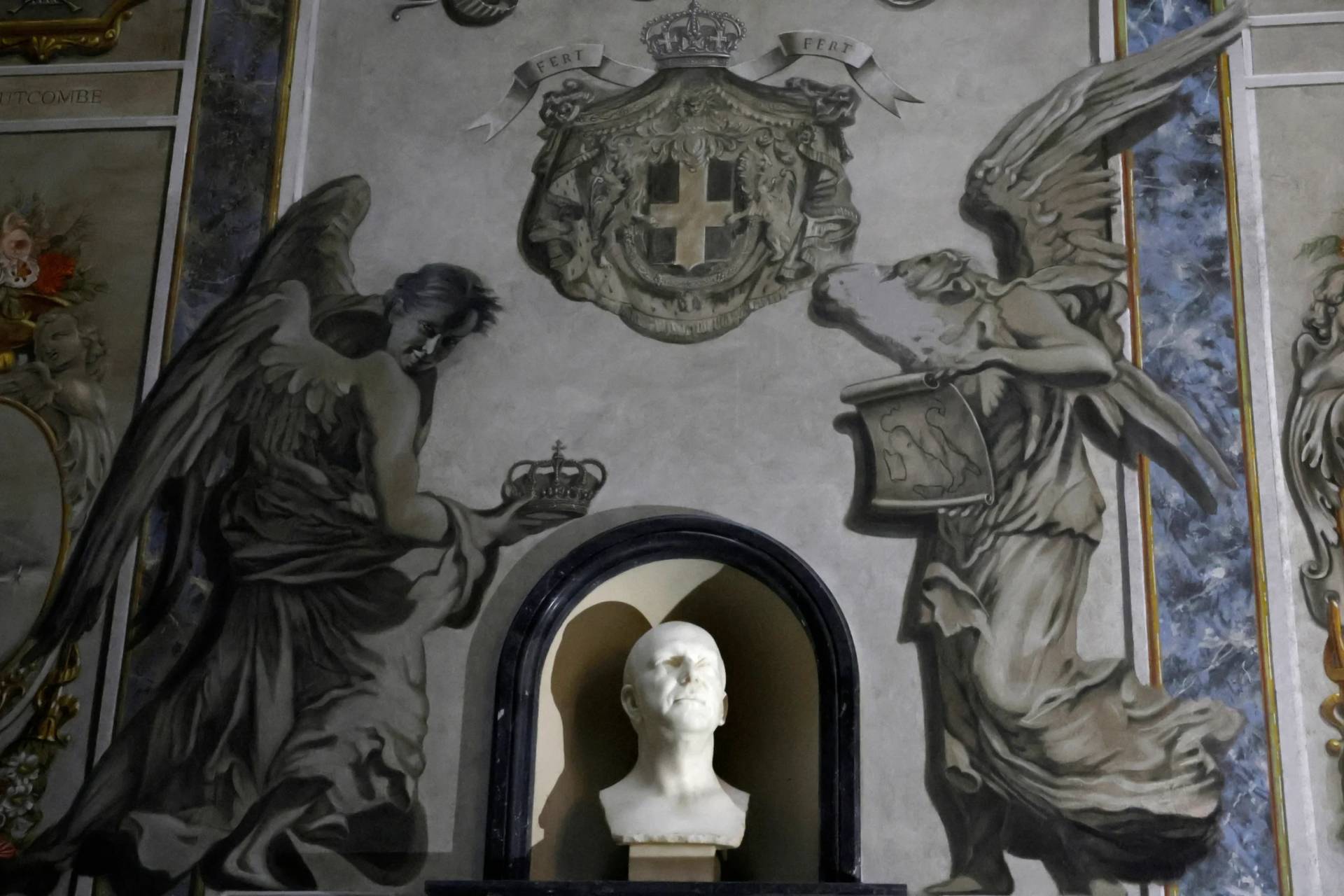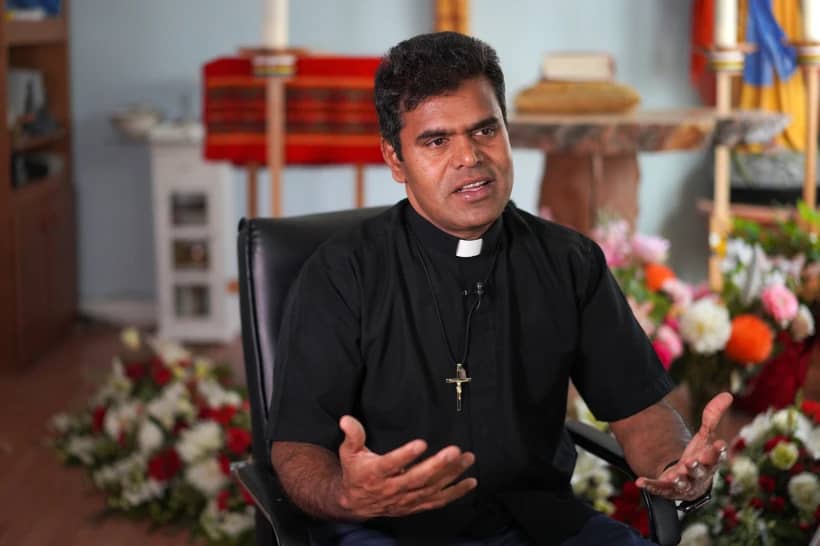SÃO PAULO, Brazil – Forty-one years after he first denounced the use of slave labor in a Brazilian farm owned by German company Volkswagen, a Catholic priest is finally seeing the case being taken to court.
Labor prosecutors filed on Dec. 4 a civil lawsuit against the car industry for supposedly having used enslaved workers in the operation of Vale do Rio Cristalino farm, located in the city of Santana do Araguaia, in Pará state.
Father Ricardo Rezende was only 25 years old when he arrived in the Diocese of Conceição do Araguaia, in the southern part of Pará state, in the Amazonian region.
He was soon informed by the president of the local rural workers’ union of grave denouncements against a large farm owned by Volkswagen, one of the most important car manufacturers operating in the South American country at that time.
“The rural workers complained about several practices common in situations of slave labor, like the undue indebtedness of workers, the impossibility of leaving the property while the alleged debts were not paid, the use of violence against workers, and even torture and killings,” Rezende recalled.
A report with those accusations, dating from 1972-1976, was handed to the authorities, but nothing had been done. Those were the times of the military dictatorship (1964-1985), when the regime stimulated the operations of international corporations and repressed labor movements.
But Rezende, who headed the local chapter of the Bishops’ Conference’s Land Pastoral Commission (CPT), kept an eye open for the occurrences in the farm.
In 1983, a group of three or four workers managed to escape from the property. One of them, a 17-year-old boy, was the son of a rural labor union leader and told the CPT all about the farm. Rezende was called and decided to join one of the workers and catch a flight to Belém, where he intended to present the case to the State governor.
“But we were told that he was in Brasilia, and so we went there,” the priest said.
In the capital, after being informed that the governor was not there anymore, Rezende decided to talk to Archbishop Luciano Mendes de Almeida, the Bishops’ Conference’s secretary general.
“He called a press conference for the following day, and we talked about the situation in the farm,” Rezende said.
Despite the presence of numerous journalists at the meeting, only one newspaper published a story about the Volkswagen property. It was a small note, but the international press saw it and articles about the scandal were published all over the world.
Rezende began sending information to international organizations and to the newspaper of the metalworkers’ union in São Bernardo do Campo, in São Paulo state, which represented the workers of the Volkswagen factory. Headed by Luiz Inácio da Silva, the current President of Brazil, the union had already denounced the German company for persecuting workers who struggled against the dictatorship.
One of the union leaders, Expedito Soares Batista, had been elected for the State legislative power, and he began to denounce Volkswagen from his tribune every day.
“The company invited me to visit the farm. I said I would take with me a union leader, journalists, and other state legislators,” Batista told Crux.
As they arrived at the property, he surprised the company’s directors, who intended to show only the farm’s modern buildings to the visitors, and told them that before the visit he wanted to meet with Rezende and the local union leader. Volkswagen had to offer a truck to him and take him to the nearby city, taking a local road that was not part of its plans.
“As we were heading to the city, we saw a truck coming in the other direction. We asked the car to stop, because we wanted to talk to the occupants,” Batista remembered.
The visitors were surprised when they saw three or four workers tied up in the truck.
“We talked to the man who was in charge, he was a labor contractor. He told us: ‘Those guys were in debt with the farm, they fled to the city and we had to stop working and go after them.’ I told him to release the men immediately,” Batista said.
Later, as the group – now with Rezende – was presented to the houses of the workers, the priest asked to get into a wooden house.
“A man grabbed my arm and asked me to take him out. He said he had high fever and wasn’t allowed to go to the hospital,” the priest recalled.
Rezende asked Friedrich Brügger, the farm’s manager, about that man’s case. The Swiss-born director was enraged and said that the priest only believed in the workers’ lies.
Later that day, during the dinner, Brügger gave a gift to Rezende as a sign of peace, after yelling at him. It was a chalice and a paten, made with brazilwood, a species that couldn’t be legally exploited.
“I asked him to see the sick man. He took me to an attention room, where the man was receiving IV serum. He told me he was from a city called Porto Nacional. I said that the local bishop Celso was my friend and asked him to say hi for me,” Rezende said.
He then asked Brügger to ensure that the man – who was probably facing malaria – would arrive safely in Porto Nacional. Brügger said that only the area of the farm was part of his jurisdiction.
“The bishop never got my message. I don’t know what happened to that man,” Rezende said.
During that visit, Batista also heard one worker telling him that the farm promoted a large-scale devastation of the Amazon rainforest in order to create cattle space. They would agree with other neighboring farms to burn portions of the woods at the same time. On one of such occasions, a satellite detected the wildfire. The press revealed that such a fire was the largest ever spotted from space.
Batista produced a report after the trip, but nothing was done. Rezende kept listening to the testimonies of workers who left the farm over the years. He had them sign the testimonies and archived all of them along with other documents, collecting a broad collection about the Volkswagen property with over 600 documents.
In 2012, during the tenure of President Dilma Rousseff, the federal government established the National Commission of Truth, a group to investigate State crimes against activists during the military dictatorship. The commission was subdivided into smaller groups, each one taking care of a specific element. That’s how Batista was invited to be part of a group of former labor leaders who suffered persecution inside Volkswagen and other companies.
Batista and his colleagues gathered evidence against the company and a lawsuit was filed against it. The social and media pressure on Volkswagen ended up leading the corporation to negotiate with the association that was formed to represent the persecuted workers.
“It paid a compensation of $6 million and apologized for its role during the dictatorship. A group of 55 workers who managed to prove they were persecuted was compensated,” Batista said.
But the case involving the farm didn’t have the same success. In the 1980s, the CPT decided to file a labor lawsuit against Volkswagen. The company ended up losing it, but it never accepted to pay damages for the victims of slave labor.
“I think it didn’t want to recognize the crimes it perpetrated,” Rezende said.
After the agreement concerning Volkswagen’s crimes was sealed, Rezende decided it was about time to reopen the case of slave labor in the farm. A prosecutor he knew accepted to conduct it. The priest sent a researcher to the region to encounter at least some of the 26 workers that gave testimonies to him in the 1980s.
“He found 14 of them. They were interviewed by the prosecutors and repeated the stories they told us 40 years ago,” Rezende said.
The statute of limitations for occurrences like murder and labor crimes has already expired. But slave labor doesn’t have a statute of limitations, so the lawsuit could be filed.
Rezende estimates that more than a thousand people faced the harsh reality of the farm in the 1970s and 1980s. Individual lawsuits may follow the current collective process.
The priest currently lives in Rio de Janeiro and is a professor at the Federal University of Rio de Janeiro, where he leads a study group on slave labor.
His efforts to accompany and register what was happening to so many exploited workers decades ago ended up being determinant for part of those victims, who now have a chance to find justice.
“Somebody should be held accountable someday for such crimes. And those people’s memories shouldn’t be erased,” he said.















